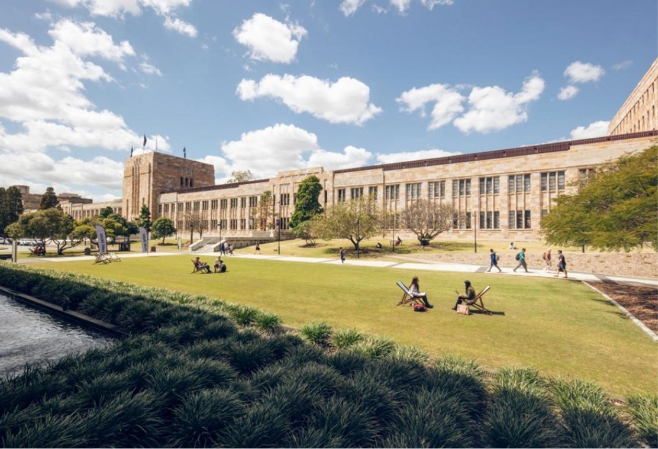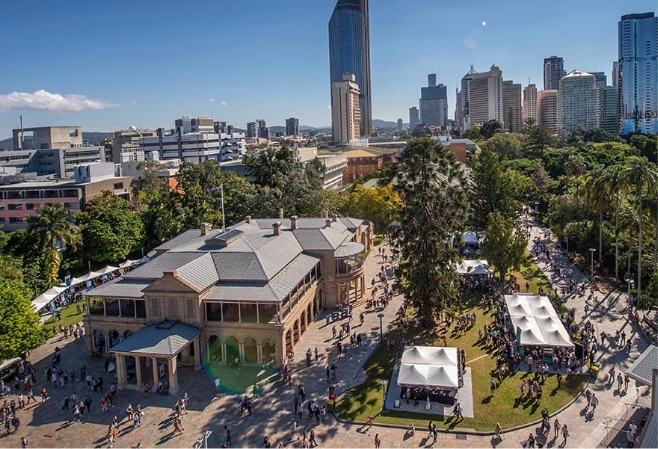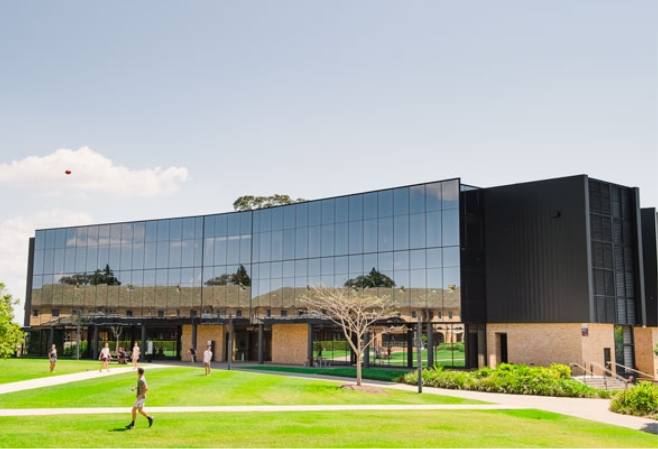Seniors Peak for Queensland
Council on the Ageing Queensland is dedicated to advocating for the rights and well-being of older Queenslanders.
1.7 million
Queenslanders will be aged 65 and older by 2053 (currently 926,752)
23.4%
of carers in Queensland are 65 years or older
2023
was the first year Queensland had over 100,000 residents aged 85 years and older
1 in 3
older Queenslanders were born overseas from across 191 countries
Council on the Ageing Queensland is proud to be recognised and funded by the Queensland Government as the peak body for seniors and social isolation prevention. This significant support allows us to continue our vital work in advocating for the rights and well-being of older Queenslanders.
We advocate through memberships of advisory committees, public statements, submissions and supporting other organisations with shared objectives.
A peak body is an organisation that represents the interests of a specific sector or group of smaller organisations with similar goals.
In Australia, peak bodies play a crucial role in advocacy, policy development, and industry standards. They act as the collective voice for their members, lobbying government and other stakeholders to influence decisions and policies that impact their sector.
We are dedicated to advancing the rights, needs, interests, and futures of the growing number of older Queenslanders from all backgrounds.
Our Insights
Our publications, submissions, and reports provide valuable insights, evidence-based recommendations and a platform for the voices of older people.
We use our insights to inform, educate, influence policy and shape future directions.
The following documents are a selection of our latest reports:
-
August 2025 - Council on the Ageing Queensland
Response to Queensland Productivity Commission’s Opportunities to Improve Construction Industry Productivity
-
May 2025 - Council on the Ageing Queensland
Response to Queensland Sport Strategy 2025
-
May 2025 - Council on the Ageing Queensland
Submission to the Queensland E-mobility and Safety Inquiry
-
COTA National Alliance Submission on National Plan to End Abuse
and Mistreatment of Older People 2024 – 2034
- February 2025 - Submission to the Inquiry into Volunteering in Queensland
- 2024 Re-imagining Ageing Report
- 2023 Listening Post Report
Policy Frameworks and Principles
We are committed to advocating for the rights, needs, interests and futures of older Queenslanders.
Our policy positions reflect a deep understanding of the issues affecting older people across the state, including health, housing, financial security, aged care, and community participation.
These positions are shaped by the voices of Queensland’s older citizens and aim to influence positive change in policies and systems that ensure that older Queenslanders can live with independence, respect and support.
We combine these voices to apply Ageing Well Principles that ensure older people are at the centre of reforms and change.
Ageing Well Principles
With international, national and state priorities steadily progressing older persons’ rights, health and wellbeing, and this underpinning and informing our work as COTA Queensland, we are also deeply committed to ensuring – through our organisational insights and observations from over sixty years of experience representing the voice of older Queenslanders – that older persons are at the centre of reforms and change.
Five principles that have underpinned our advocacy and policy are:
1. Dignity and Respect
Recognising the intrinsic value of older adults, we honour their life experiences, contributions, and aspirations, irrespective of age, background, or circumstances.
- Combatting ageism: Promote awareness campaigns to challenge stereotypes and foster respect for ageing.
- Rights advocacy: Safeguard autonomy, self-determination, and protection against elder abuse and discrimination.
- Cultural responsiveness: Ensure services respect cultural diversity, including Aboriginal and Torres Strait Islander communities.
2. Equity and Inclusion
Equity ensures all older Queenslanders have access to opportunities and resources, removing barriers to participation.
- Access to services: Advocate for fair healthcare, housing, and community support for all, including rural and disadvantaged areas.
- Intersectionality: Address unique challenges from intersecting factors like gender, disability, or ethnicity.
- Social justice: Support policies that reduce poverty and enhance social supports.
3. Empowerment and Participation
We champion the active engagement of older Queenslanders in shaping their lives and communities.
- Participatory approaches: Involve older adults as partners in co-designing initiatives.
- Capacity building: Promote skills development, digital inclusion, and informed decision-making.
- Leadership opportunities: Encourage older adults to contribute through advocacy and mentorship.
4. Health and Wellbeing
Promoting quality healthcare, preventive services, and supportive environments ensures holistic wellbeing.
- Integrated care: Advocate for accessible, person-centred services addressing diverse health needs.
- Preventive health: Support programs promoting physical activity, nutrition, and social participation.
- Streamlined systems: Ensure accessible healthcare interfaces and alternatives for varying literacy levels.
5. Safety and Security
We strive for environments where older Queenslanders feel protected and respected.
- Elder abuse prevention: Support legislation, education, and reporting mechanisms to combat abuse.
- Environmental safety: Advocate for accessible public spaces and transport.
- Emergency preparedness: Prioritise older adults’ needs in disaster plans and emergency responses.
Informed Policy
We also consider international Sustainable Development Goals (SDG) outlined in:
United Nation’s Decade of the Healthy Ageing
The SDGs, adopted in 2015, aim for a sustainable and equitable world by 2030. Key goals relevant to age-friendly communities include:
- SDG 3: Good Health and Well-being – Ensures accessible healthcare and preventive services
- SDG 10: Reduced Inequalities – Addresses the needs of vulnerable older adults
- SDG 11: Sustainable Cities and Communities – Focuses on accessible infrastructure and safe public spaces
- SDG 16: Peace, Justice, and Strong Institutions – Promotes inclusion and protection for older adults
World Health Organisation’s Aged-friendly Cities and Communities Framework
The SDGs, adopted in 2015, aim for a sustainable and equitable world by 2030. Key goals relevant to age-friendly communities include:
- SDG 3: Good Health and Well-being – Ensures accessible healthcare and preventive services
- SDG 10: Reduced Inequalities – Addresses the needs of vulnerable older adults
- SDG 11: Sustainable Cities and Communities – Focuses on accessible infrastructure and safe public spaces
- SDG 16: Peace, Justice, and Strong Institutions – Promotes inclusion and protection for older adults
Our Collaborators
COTA Queensland regularly collaborates with a diverse range of organisations in our advocacy, programs and services. Below are just some of our collaborators and we welcome discussion from organisations on any initiative that will advance the needs and interests of older people.
View the full list
- Australian Association of Gerontology (AAG)
- Association of Residents of Queensland Retirement Villages (ARQRV)
- Australian Catholic University
- Australian Frailty Network
- Brisbane North Primary Health Network
- Brisbane South Primary Health Network
- Brisbane Seniors Online
- COTA Federation
- COTA Insurance
- Ethnic Communities Council of Queensland (ECCQ)
- National Seniors Australia (NSA)
- Older Women’s Network (OWN) Queensland
- Probus Association of Queensland Inc.
- Queensland Council of Social Services (QCOSS)
- Queensland Country Women’s Association (QCWA)
- Queensland Dementia, Ageing and Frailty Clinical network (QDAF)
- Queensland Disability Network (QDN)
- Queensland Heat Health Community of Practice (QHHCoP)
- Queensland Meals on Wheels
- Queensland Public Trustee
- Queensland Walks
- QShelter
- Skills Generation
- Skills Hubs
- Social Scaffolding
- The Redland District Committee on the Ageing (RDCOTA)
- The Townsville Region Committee on the Ageing (TRCOTA)
- University of the Third Age (U3A)
- Volunteering Queensland
- Western Queensland Primary Health Network
Our Research Connections
Council on the Ageing Queensland collaborates with research institutions to address issues affecting older Queenslanders.

University of Queensland (UQ)
Supported the establishment of the Australian Frailty Network.
Supported CarFreeMe, a program assisting older people retiring from driving.

Queensland University of Technology (QUT)
Co-designed the Faces of Ageing project with older adults, challenging stereotypes and promoting positive ageing experiences.

Australian Catholic University (ACU)
Co-developed a statewide ‘Ageing Well’ survey to capture real-time data on older adults, supported by the Queensland Government.
We also work with the University of the Sunshine Coast, Central Queensland, La Trobe and RMIT Universities.